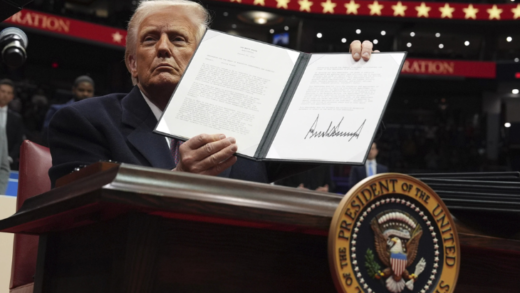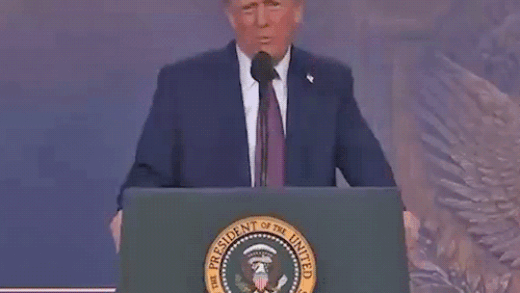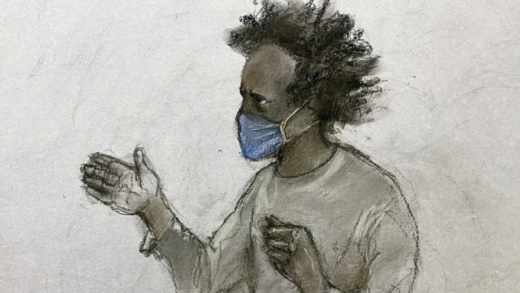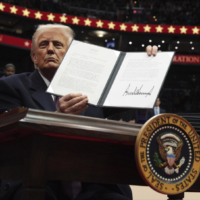The decision made by French President Emmanuel Macron on June 9 to dissolve the national assembly and call for legislative elections to be held on June 30 and July 7 showed that Macron sought to position the National Rally (Rassemblement National, RN) as his only potential adversary. But it too demonstrated that Macron misjudged left-wing parties and incorrectly bet on their supposed inability to build a strong political alliance and agree on a common political agenda. But the aftermath of this historic day has proved that Macron’s bet was wrong.
After his electoral defeat in the European elections, Macron’s announcement to dissolve the national assembly took the French people by surprise. His decision came right after the far-right National Rally of Marine Le Pen almost doubled the votes obtained by Macron’s centrist-right party (37% vs 14.6%). Nothing in the electoral code or the French Constitution obliged the French president to make this decision. Dissolving the national assembly is a discretional power provided by the Constitution meant to allow the president to unlock an institutional crisis or overcome a stalemate in which the government is unable to obtain the national assembly’s approval for important reforms. But none of these was the case in France’s current politics.
As shown by the polls and the media, the advent of a snap legislative election plunged the country into a political abysm and a state of democratic anxiety. From political analysts to some of his former political allies, French people still attempt to understand whether Macron’s gambling decision came from improvisation or mere narcissism, what were his actual intentions and whether he was keenly conscious of the consequences of this action. Despite having reiterated that the European election had nothing to do with France’s domestic politics, Macron asserted that such results showed that the country needed a moment of clarification. But what is certain is that after the triumph of the National Rally in the European race, the call for legislative elections opened a window of opportunity for Marine Le Pen’s party to win the majority in the national assembly and for Jordan Bardella, the president of her nationalist party, to obtain the designation of prime minister.
In response to the nationalist threat, and despite Macron’s political calculation, left-wing parties did not stand still. Building on the success of the socialist party’s candidate Raphaël Glucksmann, a pro-European and pro-Ukrainian politician who came third with 14% of the votes in the European elections, the Green party, the Communist party and the hard-left party La France Insoumise joined together creating the New Popular Front. The creation of this leftist coalition has not been spared from severe criticism as public opinion and the media have pointed to the extremist and antisemitic rhetoric used by some members of La France Insoumise after the October 7 Hamas attacks on Israel. So too, the Macronists did not miss the opportunity to exhibit the contradictions between different points of view expressed by members of the New Popular Front to describe this collation as being against nature. However, the New Popular Front achieved to build a consensus that tackles major points of friction. It includes a fight against antisemitism and, simultaneously, a pledge to recognize the Palestinian state, the end of the brutalization of political debate, the increase of the minimum wage and the reversal of Macron’s unpopular pension reform. Moreover, by including international political measures such as strong support to the European Union (EU) and the provision of military aid to Ukraine, the New Popular Front radically distances itself from Le Pen’s party. And the same goes for the strengthening of public services such as public media and French postal services, which the National Rally has pledged to privatize.
Le Pen’s party won the first round of the legislative elections on Sunday 30 June obtaining 33.15% of the votes, but the chances of her political party winning an absolute majority are not guaranteed. Yet, as President Macron’s camp obtained an embarrassing third place (20.04%), it was surpassed by the Popular Front which achieved 27.99%. Therefore, the possibility of Jordan Bardella, or another member of the National Rally, to become prime minister is high. If this is the case, this would be the first time in French history in which a government of cohabitation would involve a member of the far-right. Cohabitation is a term used in France to describe a bicephalic executive government in which the president and the prime minister come from opposing political parties of the left-right spectrum. The most recent French cohabitation occurred from 1997 to 2002 between President Jacques Chirac and Prime Minister Lionel Jospin. However, to block the far-right from gaining executive power has not been just a traditional practice, but almost a matter of political morality for many French citizens. Commonly known as the Republican Front, this practice has its roots in the formation of the so-called Popular Front made of a leftist coalition led by Léon Blum against a fascist threat in 1936. Over time, conservative and left parties have systematically rallied behind only one candidate in the second electoral round to prevent far-right parties from coming to power. It was precisely the republican front built against Marine Lepen in 2017 and 2022 that brought about the election and re-election of Emmanuel Macron. However, the risks of the republican front not becoming reality in these legislative elections are high, as Marine Le Pen has progressively succeeded in “un-demonizing’ her nationalist party.
Since her first presidential campaign in 2012, Marine Le Pen has engaged in a pseudo-purge of members of far-right groups from the National Rally and has marginalized antisemitic and homophobic rhetoric from her party’s official discourse. While maintaining a certain level of scepticism towards the European Union, the National Rally has abandoned the idea of leaving the Union and the Eurozone. Yet, Le Pen’s relations with Russia leaves much to be desired about her commitment to the strengthening of the European Union and, even more, to the humanistic values on which France’s democratic traditions have relied. From loans that the National Rally obtained from Russian banks to its refusal to support Europe’s military assistance to Ukraine and its ambiguous position about Russia’s invasion of Ukraine, the controversial positions of the National Front in international matters risk bringing about a substantial shift concerning existential elements of France’s international politics. Recently, Len Pen questioned the power of the French president as commander-in-chief of the military forces while underlining the prime minister’s role in national defence. Thus, the possibility of the Lepenist party accessing executive power is a matter of global fallout, as France is a permanent member of the UN Security Council and a nuclear power.
The National Rally party has however managed to build a populist agenda that instrumentalizes people’s real or perceived grievances portraying them as the responsibility of the European Union and political Parisian elites. Le Pen’s promises to build economic patriotism and national sovereignty against the European Union go in parallel with Bardella’s pledges in domestic politics. They Involve reinforcing authority in schools and putting in place a principle of national priority that would curtail immigration and privilege the rights of French nationals not just over foreigners but also French binational citizens. Thus, this is not a surprise that the prospects of Le Pen’s party winning the legislative race has fuelled hate speech and verbal violence.
Despite having called this election a moment of clarification, Macron and his actual prime minister Gabriel Attal failed to embody a vision of national reconciliation. Quite the opposite, Macron’s Renaissance party ran this legislative campaign weaving a political rhetoric based on fear. By borrowing Charles De Gaulles’s slogan “It’s either me or chaos,” during the two weeks preceding the first round, Macronism systematically described both the National Rally and the New Popular Front as political extremes that are likely to bring about civil war. Since the National Rally’s political project runs against French political institutions and values such as equal citizenship, it actually falls into the extremist category. But the same cannot be asserted about the New Popular Front. For some political analysts, in just two weeks of creation, the New Popular Front has achieved to generate hope and to authentically gather the political will of left-wing voters. Marcionism’s defeat in the first round of the legislative elections showed that fear and economic reasons are poor arguments for regaining French voters’ support. The New Popular Front’s political project integrates social justice, and citizens’ equality and reconciliates agriculture with political ecology. While addressing its internal contradictions regarding major international conflicts, the New Popular Front is likely to be the only option able to provoke the revival of French voters’ attachment to the Republican Front and the building of Europe.
Further Reading on E-International Relations
Source link
#Opinion #Save #France #Macrons #Selfinflicted #Defeat


















